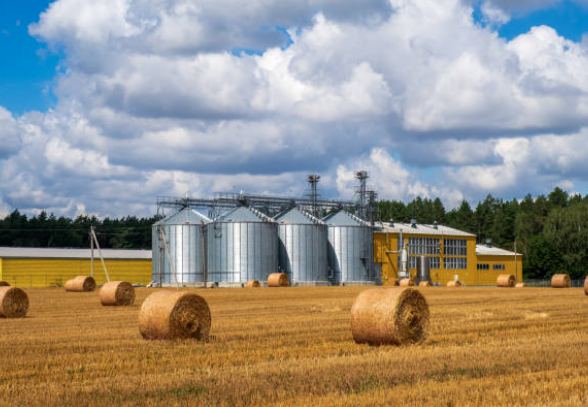
Posted on Tuesday, October 8, 2024
In the agricultural sector, efficiency and durability are paramount. As the demand for food production continues to rise, farmers and agribusinesses are seeking innovative solutions to enhance their operations. One such solution is roll forming, a manufacturing process that creates strong and versatile metal components essential for agricultural applications. This blog explores the role of roll forming machines in producing durable metal components like silos, grain bins, and structural supports, highlighting their benefits for the agricultural industry.
Roll forming is a continuous bending process that transforms metal strips into desired profiles. Using a series of rollers, raw metal coils are fed through a machine, gradually shaping the material into specific cross-sectional profiles. This method is highly efficient, allowing for the mass production of consistent and precise components, making it an ideal choice for agricultural applications.
The advantages of roll forming are numerous. It produces minimal waste, as the process can be finely tuned to utilize material effectively. Additionally, roll-formed components are known for their strength and durability, which is crucial for the harsh conditions often found in agricultural environments.
Silos are integral to modern agriculture, providing safe storage for grains and feed. These structures help preserve the quality of stored products while minimizing spoilage. Roll forming machines play a critical role in producing the robust, corrosion-resistant panels used in silo construction. The precise manufacturing process ensures that each panel fits perfectly, creating a seamless and sturdy structure that can withstand harsh weather conditions and the weight of the stored materials.
Similar to silos, grain bins are essential for storing harvested crops before they are processed or transported. Roll forming allows manufacturers to create customizable components that can adapt to varying storage needs. With the ability to produce different sizes and profiles, roll-formed grain bins can be tailored to fit specific capacities and operational requirements, ensuring optimal functionality.
Structural integrity is vital in agricultural buildings and equipment. Roll forming produces metal supports that are not only lightweight but also incredibly strong. These supports are used in various applications, from machinery frames to building structures, ensuring that agricultural facilities remain stable and reliable under demanding conditions.
The use of roll-formed components in agriculture offers several advantages:
Numerous manufacturers have successfully integrated roll forming into their agricultural operations. For instance, companies producing large-scale silos have reported significant improvements in both production speed and product quality since adopting roll forming technology. Similarly, agricultural equipment manufacturers benefit from roll-formed components, leading to lighter, stronger machinery that enhances performance and efficiency.
Roll forming is revolutionizing the agricultural sector by providing durable, customizable, and cost-effective metal components essential for various applications. From silos to grain bins and structural supports, roll-formed products are designed to withstand the rigors of agricultural life while optimizing efficiency. As the agricultural industry continues to evolve, incorporating innovative solutions like roll forming will be key to meeting the challenges of food production and sustainability.
For farmers and agribusinesses, exploring roll-formed solutions can lead to significant advantages in operation and profitability. Embracing this technology can pave the way for a more productive and resilient agricultural future.

Used Purlin Roll Forming Machines for Sale Worldwide
Posted on Sunday, January 25, 2026
Pre-Owned Roll Forming Machines for Purlin & Structural Steel Profiles

Used Roof Panel Roll Forming Machines for Sale Worldwide
Posted on Sunday, January 25, 2026
Pre-Owned Roll Forming Machines for Roofing Panel Production

Used Roll Forming Machines for Sale Worldwide
Posted on Tuesday, January 20, 2026
Pre-Owned Roll Forming Machines with Inspection, Verification & Global Support

Steel Coil Supply for Roll Forming Machines Worldwide
Posted on Tuesday, January 20, 2026
Reliable Steel Coil Supply for Roll Forming, Fabrication & Manufacturing Applications
Copyright 2026 © Machine Matcher.